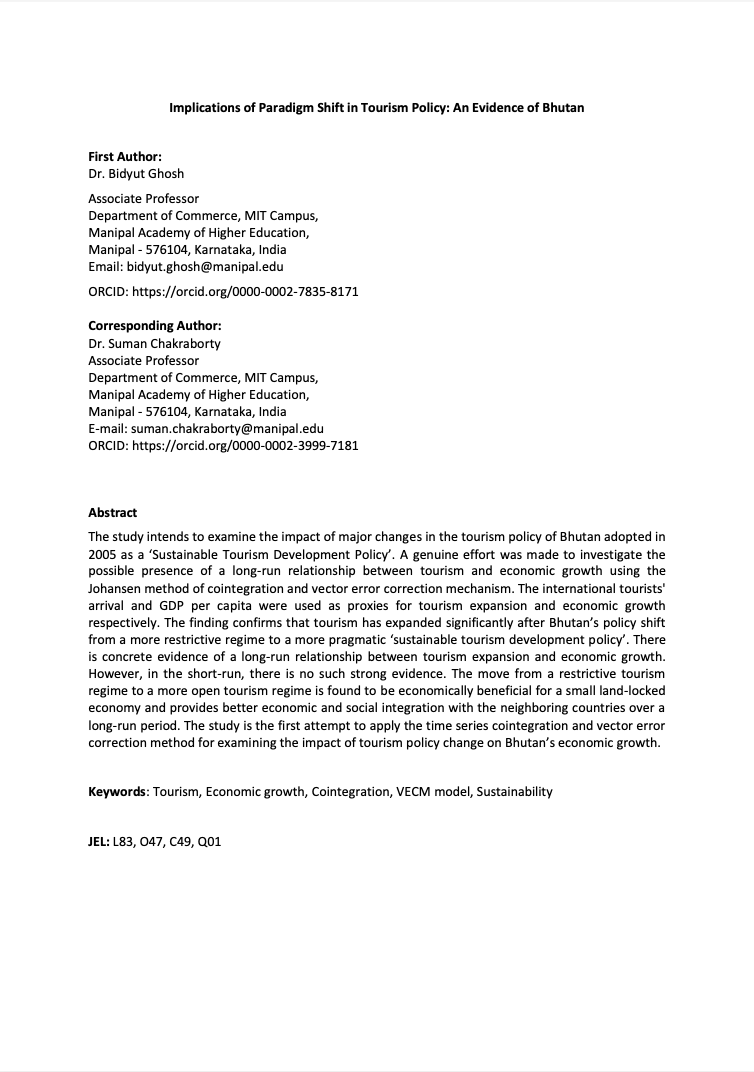Resource information
The study intends to examine the impact of major changes in the tourism policy of Bhutan adopted in 2005 as a ‘Sustainable Tourism Development Policy’. A genuine effort was made to investigate the possible presence of a long-run relationship between tourism and economic growth using the Johansen method of cointegration and vector error correction mechanism. The international tourists' arrival and GDP per capita were used as proxies for tourism expansion and economic growth respectively. The finding confirms that tourism has expanded significantly after Bhutan’s policy shift from a more restrictive regime to a more pragmatic ‘sustainable tourism development policy’. There is concrete evidence of a long-run relationship between tourism expansion and economic growth. However, in the short-run, there is no such strong evidence. The move from a restrictive tourism regime to a more open tourism regime is found to be economically beneficial for a small land-locked economy and provides better economic and social integration with the neighboring countries over a long-run period. The study is the first attempt to apply the time series cointegration and vector error correction method for examining the impact of tourism policy change on Bhutan’s economic growth.


